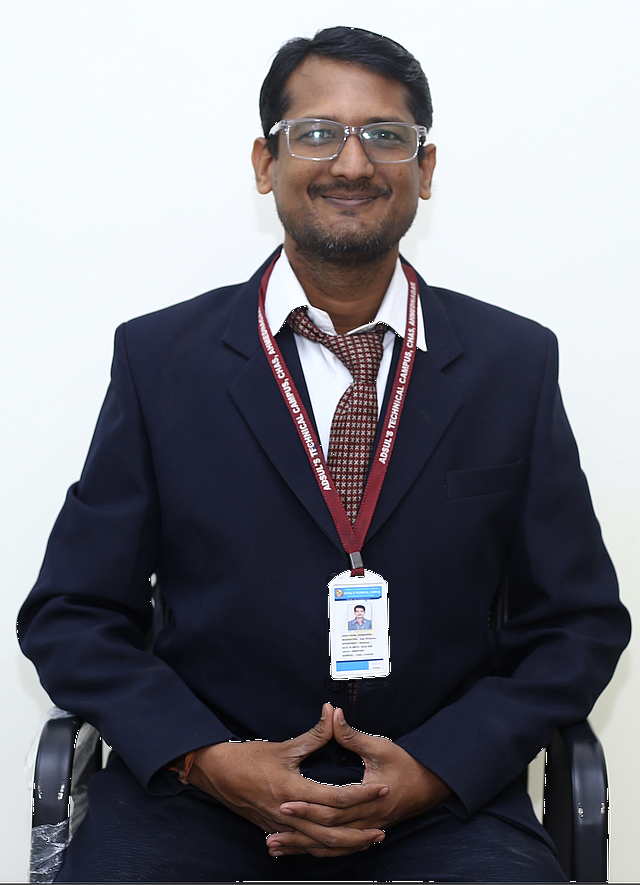PO-1 Engineering knowledge: Apply the knowledge of mathematics, science, engineering fundamentals, and an engineering specialization to the solution of complex engineering Programs.
PO-2 Problem analysis: Identify, formulate, review research literature, and analyze complex engineering problems reaching substantiated conclusions using first principles of mathematics, natural sciences, and engineering sciences.
PO-3 Design/development of solutions: Design solutions for complex engineering problems and design system components or processes that meet the specified needs with appropriate consideration for the public health and safety, and the cultural, societal, and environmental considerations.
PO-4 Conduct investigations of complex problems: Use research-based knowledge and research methods including design of experiments, analysis and
interpretation of data, and synthesis of the information to provide valid conclusions.
PO-5 Modern tool usage: Create, select, and apply appropriate techniques, resources, and modern engineering and IT tools including prediction and modelling to complex engineering activities with an understanding of the limitations.
PO-6 The engineer and society: Apply reasoning informed by the contextual knowledge to assess societal, health, safety, legal and cultural issues and the consequent responsibilities relevant to the professional engineering practice.
PO-7 Environment and sustainability: Understand the impact of the professional engineering solutions in societal and environmental contexts, and demonstrate the knowledge of, and need for sustainable development.
PO-8 Ethics: Apply ethical principles and commit to professional ethics and responsibilities and norms of the engineering practice.
PO-9 Individual and team work: Function effectively as an individual, and as a member or leader in diverse teams, and in multidisciplinary settings.
PO-10 Communication: Communicate effectively on complex engineering activities with the engineering community and with society
at large, such as, being able to comprehend and write effective reports and design documentation, make effective presentations, and give and receive clear instructions.
PO-11 Project management and finance: Demonstrate knowledge and understanding of the engineering and management principles and apply these to one’s own work, as a member and leader in a team, to manage projects and in multidisciplinary environments.
PO-12 Life-long learning: Recognize the need for, and have the preparation and ability to engage in independent and life-long learning in the broadest context of technological change.


Sakeshwar Gramin Vikas Seva Sanstha’s
ADSUL’S TECHNICAL CAMPUS
Approved by AICTE New Delhi| Recognized By Government of Maharashtra DTE and Affiliated to SPPU, Pune
Accredited by NAAC with B++, ISO 9001:2015 Certified


Home » Electrical Engineering
OUR VISION
To be a pioneer department in Electrical engineering to serve the need of industry and society.
OUR MISSION
M1: To provide state-of-the-art facilities for quality education.
M2: To make students technically sound and thorough professionals by conducting various value-added and add-on courses.
M3: To enhance industry interaction to develop competent entrepreneurs and employable professionals.
M4: To inculcate high moral, and ethical values amongst students.

Mr.JOSHI V.
The department conducts various programs under the departmental association called as Electrical Engineering Students Association (EESA) such as Workshops, Technical Training, Guest Lectures and Seminar by Experts from Industry and Academic background for constant knowledge up-gradation of staff and students. This activity helps to know the latest technologies, in the field of Electrical Engineering. The focus of the department is to imbibe the students with a potential through a broad exposure to all aspects that facilitates them for all round development. The department has a dedicated team of faculties with a wide spectrum of specialization such as Power Systems. The course has a healthy blend of Power Engineering, Electronics and Computer Engineering. The course pattern is planned to keep the students up-to-date with recent trends by organizing regular trainings, e-learning , industrial visits, workshops, conferences, faculty development programs, etc. The students are provided a platform to think, express, and exhibit their skills. The commitment and passion for learning and teaching by the students as well as faculties will definitely lead our future budding engineers to be industry ready. Education is a shared commitment between dedicated teachers, motivated students and enthusiastic parents with high expectations.
Program Specific Outcomes (PSOs)
PSO-01: Understand, plan, analyse, design and execution of buildings and infrastructures such as residential, public, industrial and irrigation structures, transportation facilities, powerhouses respectively.
PSO-02: Make use of management tools, optimization and leadership techniques to complete the
civil engineering projects within stipulated time and funds.
PSO-03: Contribute to the society for sustainable development through environmental awareness
and upholding professional ethics.
Program Outcome(PO)

Page Under Construction
Page Under Construction
| Sr.No | Year | No.of Students |
|---|---|---|
| 1 | 2022-23 | 22 |
| 2 | 2021-22 | 57 |
| 3 | 2020-21 | 40 |
| 4 | 2019-20 | 26 |
| 5 | 2018-19 | 05 |
| 6 | 2017-18 | 09 |